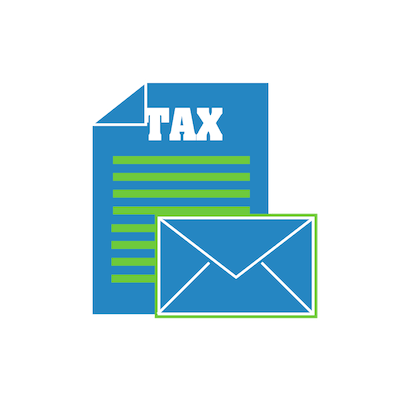Independent businesses play a major role in American finance. In 2015, small businesses contributed 1.4 million new jobs to the marketplace. 39% of those jobs were from very small businesses, illustrating why small business is so essential to a thriving economy.
Between 2009 and 2013, roughly 60% of new jobs were created from small and independently-owned businesses.
Starting a new business isn’t that complicated. There are some areas that require specialized knowledge, however, for a business to be ultimately successful. Tax law is one of those areas that requires some expertise to know how to navigate.
Today, we’re going to look at federal income taxes for small business.
We’ll show you the most common configurations for small business tax structures. We’ll delve into the pros and cons of each, to help you decide which tax setup is right for you. We’ll also offer a rough overview of how much you’re likely to pay in taxes for your small business in each tax setup.

Your Guide to Federal Income Taxes for Small Business
Before we get into the nuts-and-bolts of business tax structures, let’s look at the basic of business taxes. This will give us a deeper understanding of the various tax formats.

Federal Income Taxes for Small Business: the Basics
Filing taxes can be notoriously complicated, even for an individual. Things get even more complex when you’re talking about setting up a tax structure for your business.
There are three things you need to keep in mind when deciding on a legal structure for your business.
You’ll need to know how much you’ll be paying in taxes, depending on how your business is setup. You’ll also need to know when you’re expected to pay. Finally, you’ll want to understand your payment options.
There are three common tax setups for most small businesses. There’s a sole proprietorship. Then there’s a corporation and also an LLC.
Each of these tax setups have their own rules and regulations. Let’s delve a bit into each to get us started.

How to File Taxes as a Sole Proprietorship
A business with only one owner is known as a sole proprietorship. Filing taxes for a sole proprietorship is the most simple and straightforward of all of the business tax structures as there’s only one owner.
As a sole proprietor, instead of paying taxes for your small business, you’ll pay self-employed taxes based on your income. This means you’ll be expected to pay self-employment taxes in addition to your regular income tax.
If you run a sole proprietorship, you’ll usually file an annual tax return. You’ll also pay quarterly estimated taxes.
Estimated taxes are how businesses determine their Medicaid and Social Security payments. When you’re working for someone else you don’t need to worry about this. As a sole proprietor, however, you’re expected to pay these quarterly taxes using the estimated tax method.
To determine the rate of those payments, use the Form 1040-ES, Estimated Tax For Individuals.
For your annual tax return, you’ll use the Schedule C or Schedule C-EZ. You’ll use these forms to record your profits and losses from your sole proprietorship.

How to File Taxes as a Partnership
Filing taxes gets more complicated when more people are involved. Partnerships are a business configuration with two or more owners. There are different kinds of partnership tax setups, as well.
Limited partnerships and limited liability partnerships have their own unique rules you’ll need to understand to file business income taxes properly.
If you’re part of a partnership, you’ll need to file an “annual information return.” This shows the income, deductions, gains, and losses for your partnership. The business itself doesn’t pay any taxes, however.
Partnerships employ “pass-through taxation.” The taxes are calculated via the business. The individuals pay the taxes individually through their own income taxes, however, instead of being subject to corporate tax rates.
Each member of a partnership will need to file their part of the business’ gains and losses on their individual tax returns.
As an owner of a partnership, you’ll need to file an income tax return, employment taxes, and excise taxes. You’ll also be expected to pay income taxes, self-employment taxes, and estimated taxes.
To find all of the forms you’ll need for your partnership, look at the IRS’ guide to partnership taxes.

How to File Taxes as a Corporation
Corporations are independent financial entities from their owners. There are two common configurations for corporations – S corporations and C corporations. Each has its own unique rules but the tax rate is similar for both.
Corporations usually pay a “double tax.” This means the corporation itself pays taxes on its profits. The shareholders also pay income taxes on their share of the dividends when they’re dispersed.
S corporation and C corporation owners should be prepared to pay income taxes, estimated taxes, employment taxes (MedicAid and Social Security), and excise taxes.
You can find all of the forms you’ll need to file corporate taxes via the IRS’ list of required tax forms for corporations.

How to File Taxes for a Limited Liability Company
A Limited Liability Company (LLC) is a tax structure that protects its owners from a company’s debts or liabilities. It gives you the limited liability protection of a corporation with the tax benefits of a sole proprietorship or a partnership.
If you’re part of an LLC, you’ll be expected to pay the same pass-through taxation as a partnership. This means you won’t be double taxed like you would be with a corporation.
Instead, you’ll pay quarterly tax returns on your personal income taxes. You’ll also need to file a Form 1065 each year for informational purposes.

How Often You'll Pay Small Business Taxes
Now that we understand the most common legal structures for business, let’s dive into the mechanics.
If your business owes taxes of $1,000 or more, you’ll be expected to pay quarterly estimated taxes. Corporations need to pay estimated taxes if they owe $500 or more in taxes for that fiscal year.
Personal income taxes are only filed annually. As a business owner, you’ll pay four times a year instead. Small business owners pay quarterly taxes in April, June, September, and January.
This means you’ve got four deadlines you could potentially miss. On the up side, by the time the annual tax deadline rolls around, you’ll most likely have paid 75% of your taxes already.

How to Calculate Estimated Taxes
How do you figure out how much you’re going to owe in estimated taxes?
You’ll start by estimating your gross income from that year as well as taxable income. You’ll estimate your tax deductions and tax credits for the period you’re filing for. Looking at your taxes from the previous year is the easiest way to assess those figures.
Once you have those numbers, you can use the IRS Estimated Tax Worksheets to figure out what you’ll owe.

Preparing for Small Business Taxes
You don’t want to be left scrambling to find what you need when tax time rolls around. That means you’ll need to be as prepared as possible to make sure your taxes get filed correctly.
To prepare to file taxes for your business, you’ll need:
- Your previous tax return
- Payroll documents
- Credit card and bank statements
- Partnership agreements
- Accounting documents
- Depreciation schedules
Make sure you have all of these forms at hand when you get ready to file your taxes.
To ensure your taxes are as accurate as possible, and you get as many deductions as you qualify for, you should also save:
- Gross receipts
- Savings and checking accounts interest
- Sales records
- Returns and allowances
- Sales records
- Unclassified income
- Employee payroll
- Insurance premiums
- Professional fees
- Office rent (or portion of your home mortgage or rent)
- Travel and transportation expenses
- Advertising costs
- Office equipment and supplies
- Phone bills and other communication devices
Having all of these documents on hand will help make sure you qualify for as many deductions and tax write-offs as possible.

Small Business Tax Deductions
The lines can get blurry on what is a business expense and what isn’t when it comes to filing taxes for an independently-owned business. You’ll want to take the time to familiarize yourself with the rules, however, as it could save you thousands of dollars each year.
The standard rule of thumb is you’re able to deduct “ordinary and necessary” expenses that your business accrues simply by operating. Deducting those expenses means you’re lowering your income, which means you’ll pay less in taxes.
Some common business expenses which are tax deductible include:
- Purchasing inventory
- Paying rent
- Paying for utilities and insurance
- Advertising
- Travel
- Business fees
Let’s dig into some of the most common business tax deductions so you don’t end up paying more in federal income taxes than you need to.

Vehicle Expenses
Almost every business requires some sort of vehicle to function. This could be a van, a truck, or even a personal car. If you can prove you use your vehicle for your business, you can deduct the cost of operating that vehicle.
There are two common ways vehicle expenses are usually calculated. Standard mileage rates are calculated based on how much you use your vehicle. That rate was around 57.5 cents/mile, as of 2015.
The actual car expense deduction factors in all the expenses you incur operating your vehicle. This includes oil changes, repairs, and insurance payments, among others.
Look into both deductions and determine which one will save you the most money.

Insurance
Almost every business requires some form of insurance to operate. If you pay business insurance, health insurance, or malpractice insurance, you can write off 100% of those premium payments.

Office Rent
If you have a dedicated space for your business, you can write off your entire rent payment as a tax deduction. That’s not limited to real estate, either. You can also write off the cost of renting or leasing equipment or machinery.
If you’re operating your business out of your house, you can even deduct a portion of your rent or mortgage from your federal income taxes. You should look into home office deductions, as they can save you quite a bit of money each year.

Startup Costs
Starting a business can incur a lot of unexpected expenses. The good news is that nearly all of those startup expenses can be deducted from your income tax.
Any organizational costs or startup-related expenses are considered capital expenditure by the IRS. The IRS offers a pretty loose definition of capital expenditure. They’re defined as any amounts paid or incurred when you’re starting a business.
This could even include the cost of researching a business when preparing to launch.
You can choose to deduct up to $5,000 in startup-related expenses and $5,000 in operating expenses from your federal income tax.

Inventory
Inventory’s not all always tax deductible, which means a lot of business owners overlook writing it off.
If you use the cash-based method of accounting that considers inventory an asset, you can often write those expenses off as a tax deduction.
If you’re working in the service industry, you can probably deduct the cost of your entire inventory, as well. Say you’re operating a salon that also sells shampoo and conditioner. That inventory would probably qualify as a tax deduction.
As you can see, filing business taxes isn’t as complicated as it seems at first glance. Once you know what you’re doing that is.
Filing your business taxes properly helps ensure your business remains as competitive and profitable as possible. Stop wasting money and put that extra capital into growing your business!

Be Proactive: Get a Business Tax Attorney on Your Side
There is nothing like having a trusted tax professional in your corner to give you the peace of mind necessary to building your business. Silver Tax Group features over 40 years of collective tax expertise. We’ll get you the best deals on your federal income taxes on small business with the latest business tax laws and regulations.
If you’re ready to get your business up off the ground and flourishing, contact us today!








